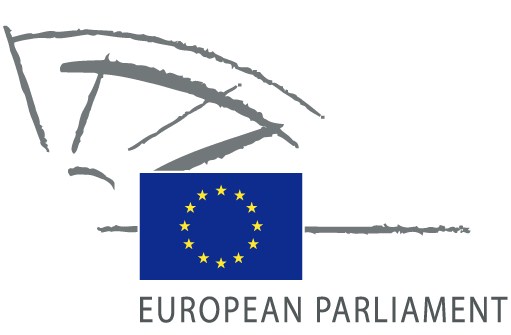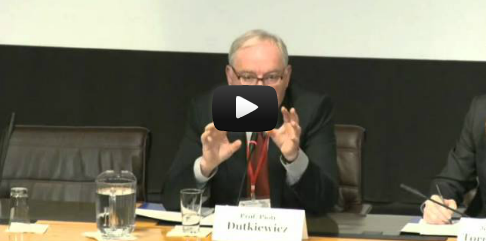Home to the Manas Air Base, a transit hub central to NATO efforts in Afghanistan, Kyrgyzstan is on the brink of civil war. The NATO Partnership-for-Peace member country has experienced recent ethnic clashes between the majority ethnic Kyrgyz and minority Uzbeks in the south of the country, leaving between 300 to 2000 people dead. Some 400,000 people are also displaced as a result.
The violence in a country that was once called the Switzerland of Central Asia followed a bloody uprising in April of this year that toppled President Bakiyev who had just been re-elected for another five-year term of 23 July, 2009 with 76.4% of the vote.
Bakiyev’s re-election was marred by allegations of ballot-stuffing, inaccuracies in voter lists and multiple voting, with the Organization for Security and Co-operation in Europe calling the vote “a disappointment”. Bakiyev had first been elected in 2005, after the so-called Tulip revolution saw angry demonstrations successfully ousting long-serving president Askar Akaev. In power since 1990, Akaev had been the country’s first elected president.
The 2005 elections were considered a new start for Kyrgyzstan, the best chance it had had at democracy and at a flourishing civil society since the break up of the Soviet Union. However, the hopes of the Tulip Revolution soon wilted away: newly elected Mr. Bakiyev dashed the country’s aspirations by breaking his promise to limit presidential power and failing to curb endemic nepotism. For many Kyrgyz, it seemed as if the disliked Akaev clan was being replaced by the Bakiyev one. During his time in office, corruption increased and media freedom was curbed once again. Bakiyev was re-elected in 2009, partly because his opposition was too divided to offer a decent alternative.
A revolt in April of this year changed the political landscape once again, carrying with it possibly severe geopolitical repercussions. Kyrgyzstan is the only country to host both a Russian and an American military base. Mr. Bakiyev was skillful at managing both. Under his candidacy, the United States military installation at Manas International Airport was opened in December 2001. Supporting U.S. operations in Afghanistan, the base provided support for personnel and cargo transiting as well as aerial refueling, in addition to hosting forces from several other ISAF member states. The base stirred controversy both locally and among the regional powers, Russia and China. An incident which involved the shooting of a local civilian in 2006, as well as rumours of fuel dumping have led to strains with the local population.
Bakiyev attempted to use Manas as economic leverage, and did so quite successfully. After being promised more than $2 billion in aid and loans from Russia in February 2009, he quickly declared that the American base would be closed within six months. The aid money was seen as a way of outbidding the Americans, presumably in order for Russia to safeguard its former sphere of influence. Afterall, Russia had made no secret of its displeasure at the American presence in Kyrgyzstan. The U.S. responded in kind. It had to strike a new deal in order to secure its vital base. On 7 July 2009, a new agreement was ratified, increasing the rent of the U.S. facilities from $17.1 million to $60 million and it included an additional $117 million for various direly needed infrastructure and development projects.
Despite his ability to play off geopolitical rivalry for Kyrgyzstan’s benefit, Bakiyev’s failures to reform domestically led to his downfall. In the aftermath of the disputed 2009 elections and the revolt that followed, troops and supplies bound for Afghanistan were grounded for several days. Although operations are back to normal now, Washington is concerned the new government’s warm relations with Moscow could affect its five-year lease.
The new government is decidedly pro-Russian. In fact, the interim President Roza Otunbayeva has publically called for its neighbour to send troops into the country in order to help calm the unrest. Russian President Medvedev has so far declined but is politically supportive of the new leadership.
The future of the Manas Airbase is still uncertain. Some members of the interim government have suggested that the U.S. lease should be shortened. Locals are ambivalent and even employees at the base, who earn on average $120 above the national monthly norm, are hardly supportive of it. “If the government finds it (the base) harmful for the country, that it brings no benefit to the people, then of course they should close it”, commented Zhopara, a waitress at the base canteen.
Moreover, political allegations continue. Otunbayeva’s allies have accused the U.S. of turning a blind eye to allegations of corruption linked to the sale of fuel at the base, alleging that Bakiyev and his family profited unfairly form such deals. On his June visit to Kyrgyzstan, Assistant U.S. Secretary of State Robert Blake, said Washington could review fuel contracts to make such deals more transparent.
For now, Otunbayeva has stated that she will abide by all agreements covering the base and allow the transit center lease to be extended automatically for another year this summer. On June 27th, Kyrgyzstan voted to create Central Asia’s first parliamentary democracy and while tensions continue to simmer in the south of the country, Otunbayeva will try to push through her electoral reforms.
The former president has said his decision in 2009 to extend the Manas lease, months after announcing the U.S. military would have to leave, unnerved the Kremlin and was a factor in his overthrow. The Manas base remains as important as ever for the U.S. and for the NATO effort in Afghanistan. About 50,000 troops traveled into or out of Afghanistan via Manas in March. Pentagon officials say they have other options, but they would be more expensive. Other NATO supply routes have recently been fraught with danger. Just in June, militants destroyed 50 NATO supply trucks on the Pakistan border heading for Afghanistan.
Both Moscow and Washington offered prompt support for Otunbayeva’s interim government immediately after it came to power. However a decision on the renewal of the Manas base will probably not be taken until after the general elections scheduled for October. With the proper reforms in place to increase transparency of the base’s transactions, and with Russia’s cautious approach to sending in its troops, the economic benefits of the base may outweigh the potential political liabilities of aggregating Russia. One thing is clear – the U.S. and NATO can hardly afford to lose it.
By: Monika Wyrzykowska
Sources: Top EU official calls for investigation into deadly ethnic violence in Kyrgyzstan, NATO troops in Kyrgyzstan surprised by revolt, Troubled transition: Kyrgyzstan’s interim government, Key political risks to watch in Kyrgyzstan
*Disclaimer: Any views or opinions expressed in this newsletter are solely those of the authors and do not necessarily represent those of the NATO Council of Canada. This article is published for information purposes only.
For additional information, please read Kyrgyzstan’s Struggle for Democracy.



